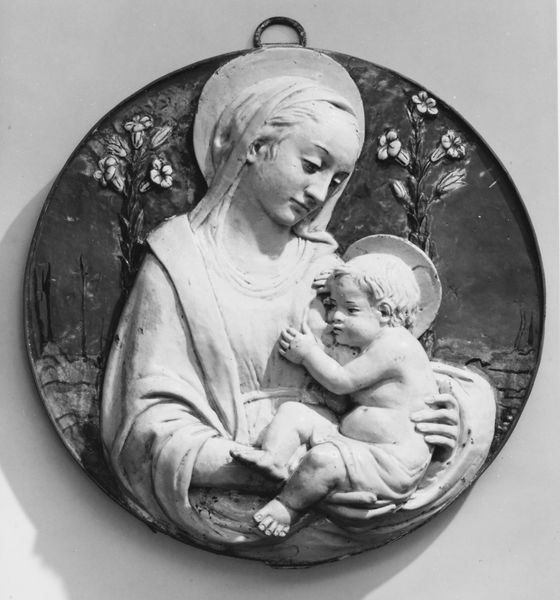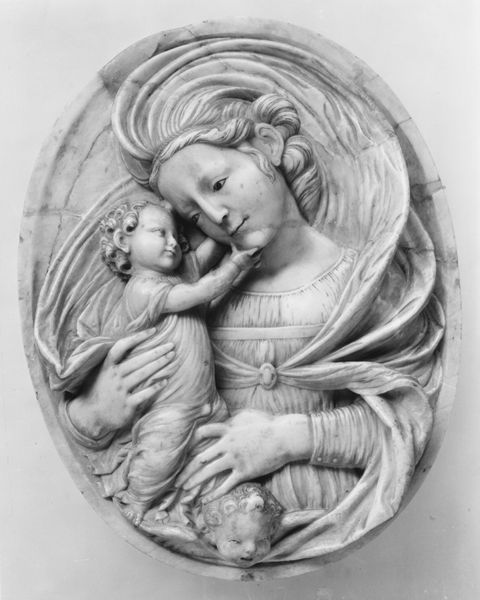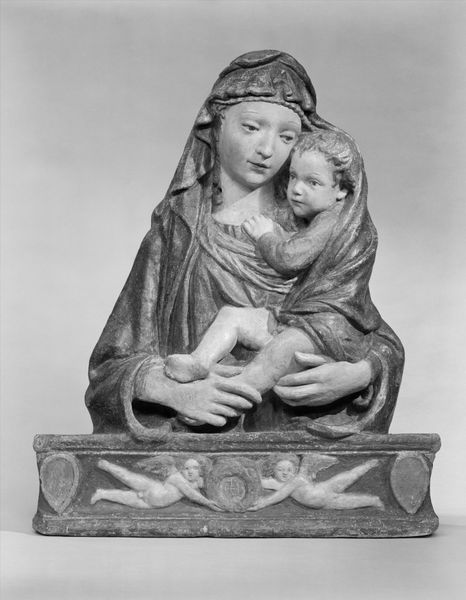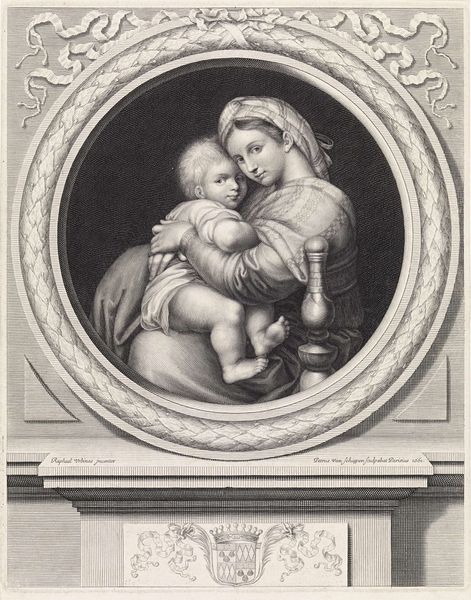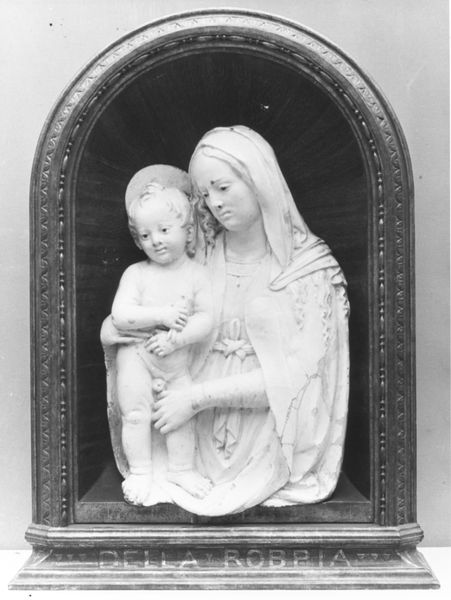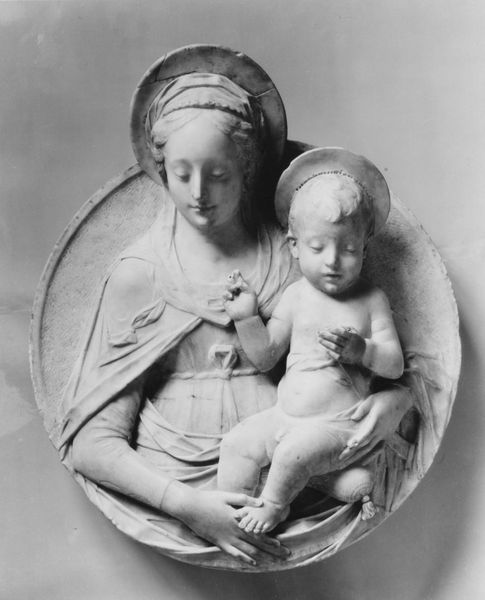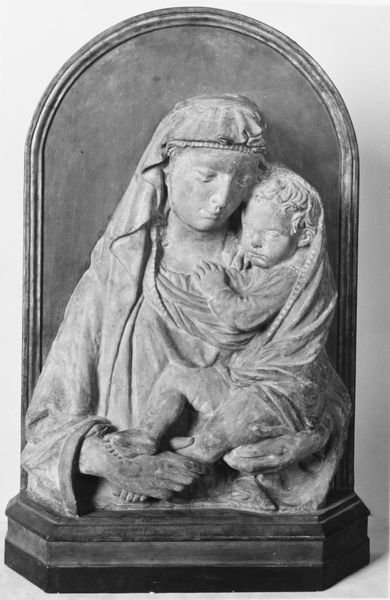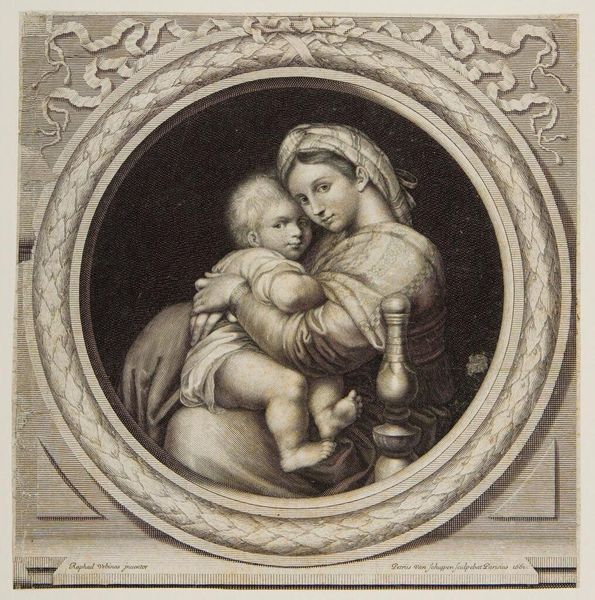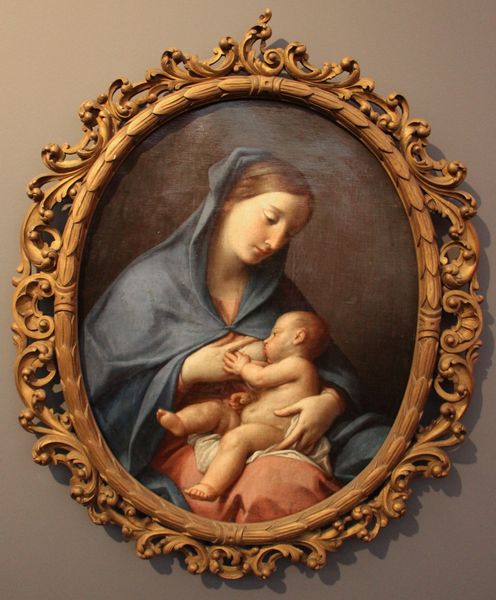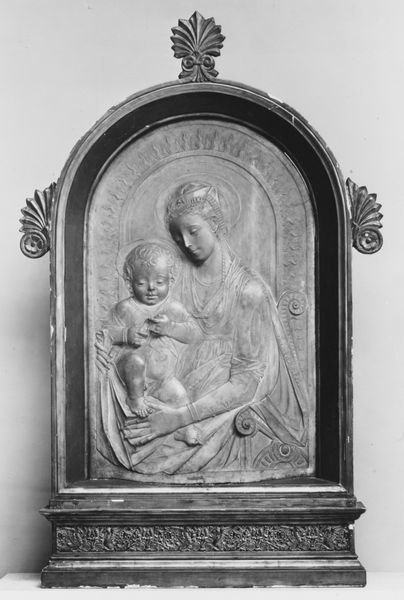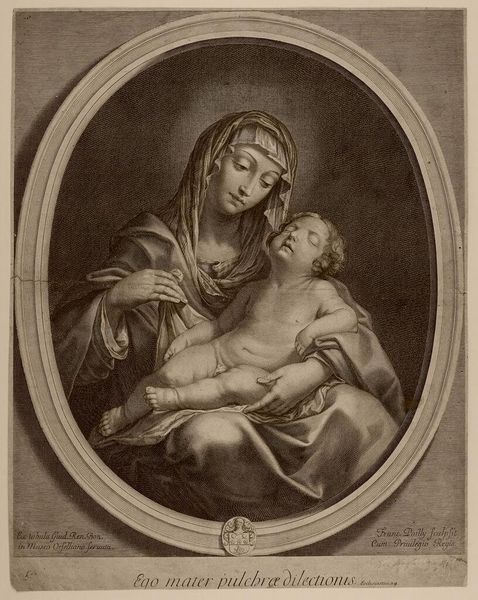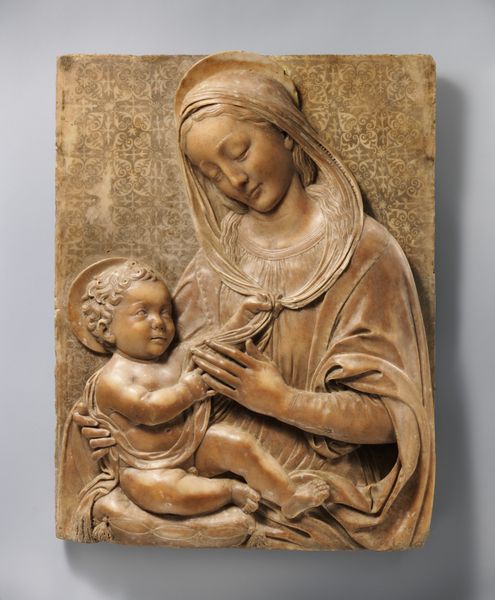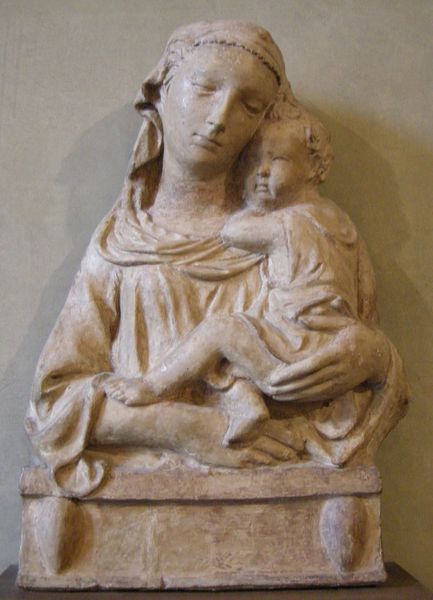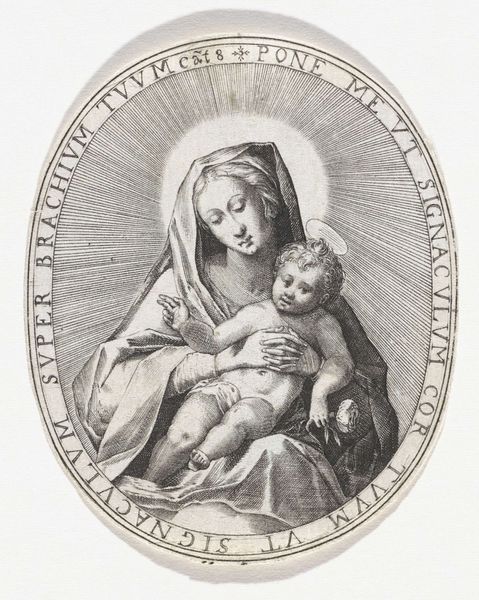
relief, ceramic, sculpture
#
portrait
#
medieval
#
sculpture
#
relief
#
ceramic
#
figuration
#
madonna
#
child
#
sculpture
#
decorative-art
#
italian-renaissance
Dimensions: 6 3/4 × 22 1/2 in. (17.1 × 57.2 cm)
Copyright: Public Domain
Benedetto Buglioni sculpted this Madonna and Child from glazed terracotta in Florence, Italy, sometime around the turn of the 16th century. Buglioni was part of a workshop that specialized in this technique. They skillfully molded wet clay, then applied a colored glaze and fired it in a kiln. This gave the finished surface a smooth, luminous quality, but more importantly, it made the artwork durable enough to withstand outdoor conditions. In Renaissance Italy, these kinds of reliefs were often placed on the facades of buildings, offering public displays of devotion. The whiteness of the glaze enhances the sculpture's sense of purity, emphasizing the delicate folds of Mary's robe and the soft contours of the Christ Child. The success of the Buglioni workshop suggests a significant demand for these pieces, reflecting not only religious piety but also the economic prosperity of the time. So, next time you see a glazed terracotta relief, remember that it represents a fascinating intersection of art, craft, and social context.
Comments
No comments
Be the first to comment and join the conversation on the ultimate creative platform.
